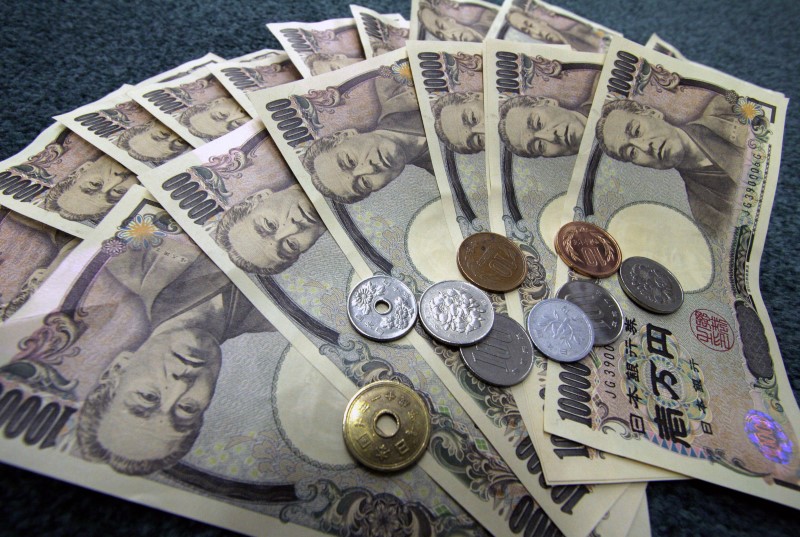(Updates with latest market moves)
By Marc Jones
LONDON, March 31 (Reuters) - How much damage has the
coronavirus and the oil price collapse inflicted on global
financial markets this year? Put simply, it has probably been
the most destructive sell-off since the Great Depression.
The numbers have been staggering. $12 trillion has been
wiped of world stock markets .MIWD00000PUS , oil has slumped
60% as Saudi Arabia and Russia have started a price war and
emerging markets like Brazil, Mexico and South Africa have seen
their currencies plummet more than 20%.
Volatility and corporate borrowing market stress has spiked
on worries that whole sectors could go bust, airlines
.dMIWO0AL00PUS have had half their value vaporised, while
cratering economies risk a new wave of government debt crises.
"It has been like a train wreck," Chris Dyer, Director of
Global Equity at Eaton Vance, said. "You could see it coming and
coming and coming, but you just couldn't stop it happening."
That carnage has seen 22% and 20% slumps for Wall Street's
Dow Jones .DJI and S&P 500 .SPX , over 23% for MSCI
49-country world index .MIWD00000PUS and 26% for London's
internationally exposed FTSE .FTSE .
For reference, the record quarterly drop for Wall Street was
40% in 1932 in the midst of the Great Depression. The fact that
the S&P and Dow were at record highs back in mid February has
made the crash this time seem more brutal.
Stocks in China, where the virus hit first, have faired
relatively well in comparison with only an 11% drop in dollar
terms .CSI300 , but the impact on other major emerging markets
has been devastating as their main commodity markets, and
currencies, have also collapsed.
Russian stocks, which topped the tables last year, have been
routed 40% in dollar terms. South Africa, which was stripped of
its last investment grade credit rating on Friday, has fallen by
the same percentage, though Brazil has been the worst, plunging
50%.
A large part of that is down to some wild FX market moves.
All three of those countries have seen their currencies lose
over 20% this year, which also ties in to the commodity market
carnage.
Brent crude oil has fallen by 65% in the quarter to just $25
a barrel LCOc1 . This was not only because of the coronavirus
crisis, but also the price war between Saudi Arabia and Russia,
which is putting their public finances at risk.
Industrial metals like copper /MCU3=LX , aluminium
/MAL3=LX and steel have all dropped 15-22% and some
agricultural staples like coffee LRCc2 and sugar SBc1 are
down 17% and 10%.
"These are truly historical moments in the history of
financial markets. 2020 will go alongside 1929, 1987 and 2008 in
the text books of financial market panics," Deutsche Bank
Strategist, Jim Reid, said.
GIVE ME SHELTER
So are there any places to shelter? Yes, but not many.
Sit-on-your-sofa-suited stocks like Netflix NFLX.O and
Amazon AMZN.O have risen 14.5% and 6.5% respectively and some
specialist medical equipment companies have surged.
Ultra-safe U.S. government bonds have returned 12% as the
Federal Reserve cut U.S. interest rates to effectively zero,
leading a charge of around 62 interest rate cuts globally.
The dollar has rocketed against emerging market currencies.
It had also shot up against the majors too, but has eased back
over the last two weeks and will end the quarter only 3% up
against those bigger currencies. USD=
This has left the Japanese yen, the other traditional FX
safe-haven, with only a 0.5% gain JPY= . The Swiss franc is
down against the dollar, although it has climbed steeply against
the euro and many other currencies. EURCHF=
Will April bring much relief? JPMorgan reckons the
coronavirus will have pushed the world economy into a 12%
contraction in Q1 and with pandemic still spreading rapidly and
keeping large parts of the global economy shuttered it is
unlikely to get much easier in Q2.
The cavalry has arrived though. G20 governments have
promised a $5 trillion revival effort, major central banks have
cut rates and restarted asset purchases. Markets bounced big
last week until Friday came and may still end Q1 on a relative
high. MKTS/GLOB
Stephane Monier, Chief Investment Officer of Lombard Odier,
is looking to see whether infection rates in Europe and
elsewhere peak as they did in Asia. If they do, markets could
see a V-shaped 30% recovery, although if they do not and cases
jump in Asia again as lockdowns are lifted, it could be akin to
a "war" situation which would impact the economy for 1-1/2
years.
"Our expectation is for a very volatile second quarter,"
Monier said. "It is important to keep in liquid, high-quality
assets."
<^^^^^^^^^^^^^^^^^^^^^^^^^^^^^^^^^^^^^^^^^^^^^^^^^^^^^^^^^^^
BBB corporate bond spreads explode https://reut.rs/2xrdXBu
World stocks vs. COVID-19 confirmed cases https://reut.rs/2UEjBrT
Currencies since the start of the year https://reut.rs/2JjWrSm
Coronavirus wipes $12 trillion off world stocks https://reut.rs/3dIwPfV
Coronavirus crashes world markets https://reut.rs/2xFuvGc
^^^^^^^^^^^^^^^^^^^^^^^^^^^^^^^^^^^^^^^^^^^^^^^^^^^^^^^^^^^>
